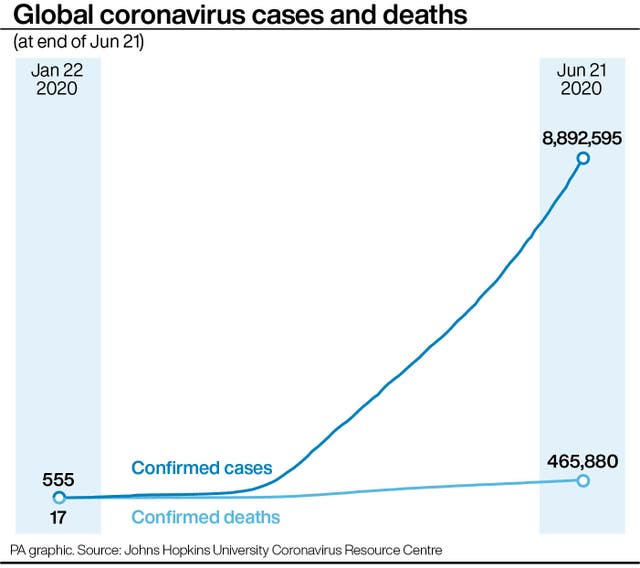Critically ill Covid-19 patients ‘more likely to develop heart rhythm disorders’
Scientists say their findings differ from early reports that showed a high incidence of arrhythmias among all Covid-19 patients.

Cardiac arrests or heart rhythm disorders in patients in hospital with coronavirus are likely triggered by a severe, systemic form of the disease, research suggests.
Covid-19 patients who were admitted to an intensive care unit were more likely than other coronavirus patients taken to hospital to suffer from the conditions, the study also found.
Researchers say their findings also suggest that cardiac arrests and arrhythmias are not the sole consequence of the viral infection.
Scientists say the findings differ significantly from early reports that showed a high incidence of arrhythmias among all Covid-19 patients.
The study provides more information about the role of Covid-19 in the development of arrhythmias, including irregular heart rate (atrial fibrillation), slow heart rhythms (bradyarrhythmia) or rapid heart rate that stops by itself within 30 seconds (non-sustained ventricular tachycardia).

Senior and corresponding author, Rajat Deo, a cardiac electrophysiologist and an associate professor of cardiovascular medicine at the University of Pennsylvania, said: “In order to best protect and treat patients who develop Covid-19, it’s critical for us to improve our understanding of how the disease affects various organs and pathways within our body – including our heart rhythm abnormalities.”
He added: “Our findings suggest that non-cardiac causes such as systemic infection, inflammation and illness are likely to contribute more to the occurrence of cardiac arrest and arrhythmias than damaged or infected heart cells due to the viral infection.”
Heart rhythm problems occur when electrical impulses that co-ordinate heartbeats do not work properly, causing the heart to beat too fast, too slow, or irregularly.
If left untreated, cardiac arrhythmias can lead to serious medical conditions, including stroke and cardiac arrest.
To evaluate the risk and incidence of cardiac arrest and arrhythmias among patients in hospital with Covid-19, researchers in the Perelman School of Medicine at the University of Pennsylvania evaluated 700 patients admitted to the Hospital of the University of Pennsylvania between early March and mid-May.
The patients had a mean age of 50 years, with black patients accounting for more than 70% of the population.
Researchers identified 53 arrhythmic events – nine patients who suffered cardiac arrest, 25 patients with atrial fibrillation who required treatment, nine patients with clinically significant bradyarrhythmias and 10 non-sustained ventricular tachycardia events.
The team did not identify any cases of heart block, sustained ventricular tachycardia or ventricular fibrillation.
Of the 700 patients in hospital, about 11% were admitted to the ICU.
None of the other patients in hospital suffered a cardiac arrest, according to the study published in the Heart Rhythm Journal.
After controlling for underlying demographic and clinical factors, researchers found cardiac arrest and arrhythmias were more likely to occur among patients in an ICU compared to the other patients in hospital.
Researchers noted that the study has several limitations, including that the analysis was conducted from a single centre serving a large urban population.
They add that more research is needed to assess whether the presence of cardiac arrhythmias have long-term health effects on patients who were in hospital with Covid-19.





